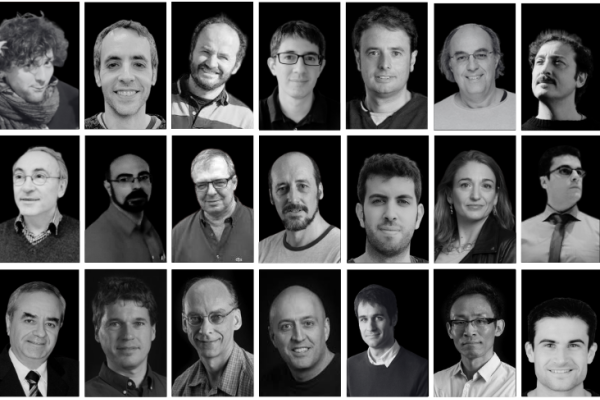An international team led by ICCUB researcher H. Witek has been awarded a prestigious 15 million CPU hour high-performance computing time grant by PRACE, the Partnership for Advanced Computing in Europe. The project “ProbPhysGrav – Probing fundamental physics with gravity”, running from 2 October 2017 to 30 September 2018, will shed new light on some of the most intriguing mysteries in gravity and cosmology using gravitational waves.
The ground-breaking observations of gravitational waves by advLIGO/VIRGO have opened a new observational window to answer open questions in physics. For example, the constituents and properties of dark matter are still an open puzzle, and there are numerous open issues concerning the inflationary phase of our universe. In both cases we expect to observe characteristic gravitational wave signatures with current or future detectors. How they would look like exactly, however, is yet unknown. Moreover, having theoretical predictions of the expected signals is essential to identify them in the data and to understand their meaning. This is precisely the goal of the project: simulate the early stages of our universe and the collision of black holes in dark matter environments in the most violent, highly dynamical regime of gravity and predict their gravitational wave signatures to confront theory with observations.
The computations required to obtain these predictions from the equations of General Relativity are so complex that they can only be performed by very powerful supercomputers. PRACE is a pan-European Research Infrastructure for High Performance Computing consisting of several Tier-0 supercomputers distributed across the continent, including MareNostrum at the Barcelona Supercomputing Center (BSC), where the project “ProbPhysGrav” is running.
Helvi Witek is a Marie Curie research fellow in the Gravitation and Cosmology group of ICCUB. Her main research interests are numerical relativity, black hole and gravitational wave physics, and their applications in high-energy physics and cosmology. She carried out her PhD studies on black hole collisions in higher dimensional spacetimes at the Centro Multidisciplinar de Astrofisica (CENTRA)/ Universidade de Lisboa. After graduating in 2012, she joined the Department of Applied Mathematics and Theoretical Physics (DAMTP) / University of Cambridge (2012-2015) and the School of Mathematical Sciences / University of Nottingham (2016), where she developed new techniques to investigate the interplay between black holes and fundamental fields, and to study the formation of black holes in extensions of GR. She became an ICCUB member in September 2016.
Apart from H. Witek, her team consists of researchers from 7 institutions all over Europe including CENTRA / IST (M. Zilhão), King's College London (E. Lim, J. Cook, T. Helfer), CERN (D. Blas), University of Goettingen (K. Clough), Queen Mary University London (H. Bantilan, P. Figueras) and the University of Cambridge (W. Cook, M. Kunesch, R. Rosca, U. Sperhake).



